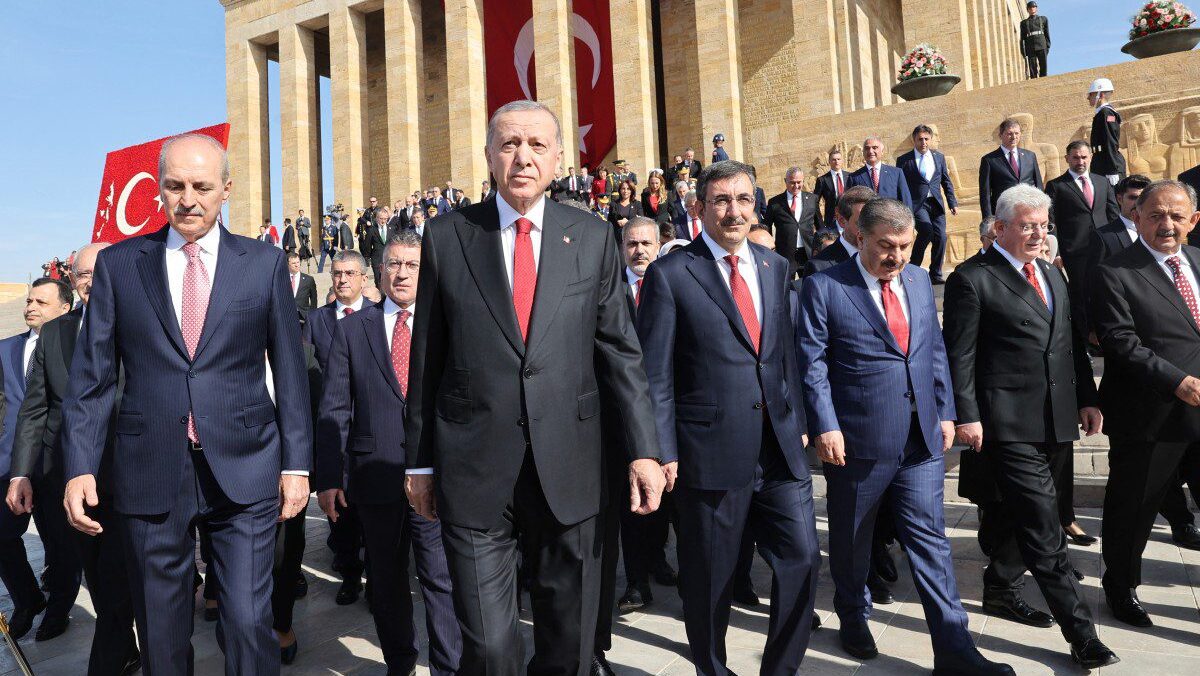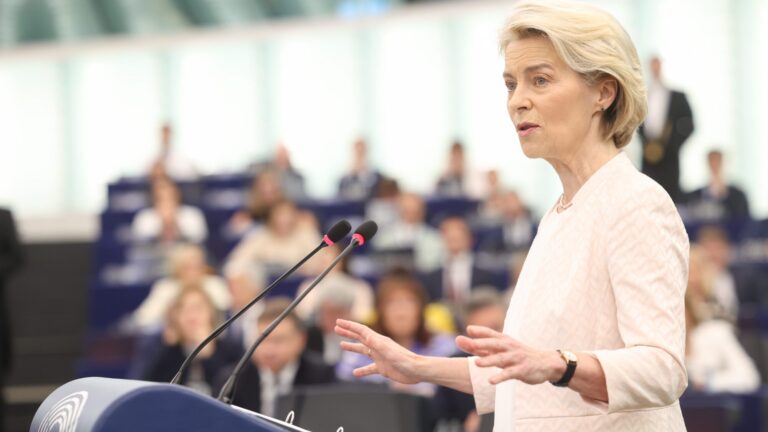Turkish President Recep Tayyip Erdoğan heightened tensions in the Middle East with two separate speeches given over the weekend. On Saturday, October 28th, he lambasted Israel and the collective West for the suffering of Palestinians in Gaza, which he regularly referred to as a former territory of the Ottoman Empire. One day later, on Sunday, October 29th, on the 100th anniversary of the creation of the modern, secular Turkish republic, he vowed to protect “the unprotected” “from the Balkans to the Caucasus, from Karabakh to Africa, from Turkestan to Palestine.”
İhtişamıyla gözleri kamaştıran, kökleri derinlerde ulu bir çınar… Türkiye Cumhuriyeti! #TürkiyeYüzyılı 🇹🇷 pic.twitter.com/JfYXz32SAa
— Recep Tayyip Erdoğan (@RTErdogan) October 29, 2023
Erdoğan regularly likes to cast himself as the guarantor of the interests of Muslims in the Middle Eastern region, and is not shy about using Turkey’s geopolitical ambitions to influence nations that once belonged to the Ottoman Empire. He talked of “our determination to protect our independence and future, which we have extended to the whole of our kindred geography.” Though Turkey is a secular republic, a member of NATO—with its second largest army—and officially still a candidate for EU membership, under Erdoğan it has regularly been a thorn in its Western allies’ side, most recently delaying Sweden’s entry to NATO.
The president has gone even further with his criticism, saying on Saturday in front of a reported 1.5 million pro-Palestinian demonstrators, that “the massacre in Gaza is the work of the West as a whole.” After militants of the Palestinian terror group Hamas raided Israel and killed 1,400 civilians on October 7th, Israel launched a retaliatory attack against Hamas in Gaza, which has so far reportedly claimed the lives of 8,000 people.
Bugün İstanbul’da Filistin davasına sahip çıkan, Gazzeli mazlumlara umut olan aziz milletimin her bir ferdini tebrik ediyorum.
— Recep Tayyip Erdoğan (@RTErdogan) October 28, 2023
Tüm ülkeleri, Gazze’de çocuklar, kadınlar ve masum sivillerle birlikte enkaz altında kalan insanlığın ortak değerlerine sahip çıkmaya çağırıyoruz. 🇹🇷🇵🇸 pic.twitter.com/Vq9aZOW79e
Erdoğan went on to say:
We are well aware that institutions and individuals who claim to be liberal, libertarian, free-market, human rights advocates are actually tripping our country up, and we know the intentions behind their actions. Now we are witnessing the same realities in Gaza. The Western world, from its politicians to its media, mobilised to legitimise the massacre of children, women and innocents in Gaza. Israel has been openly committing a war crime for 22 days. We will announce Israel to the world as a war criminal.
The president spoke of the “hypocrisy” of those, who “wept crocodile tears for the civilians killed in the Ukraine-Russia war,” but “are now quietly watching the killing of thousands of innocent children.” Talking about Israel he said the country “is just a pawn in the region to be sacrificed when the day comes,” and “when their own houses begin burning, the Westerners that they rely on will pack and leave, and Israel will be left alone together in this geography with the people they have been oppressing for 75 years and their brothers.”
Erdoğan also made a thinly veiled threat, saying:
We will continue to advance on our own path with the motto ‘we might come one night all of a sudden.’
Erdoğan’s remarks prompted Israel to announce the withdrawal of all diplomatic staff for a “re-evaluation” of relations. A few days ago, the Turkish President called Hamas a liberation group of “mujahideen” fighting for its lands and people. As the Times of Israel points out, Turkey and Israel have had a rocky relationship in the past few years, and only recently restored full diplomatic ties. Turkey maintains deep ties with Hamas, and has allowed the terror group to operate from an office in Istanbul for over a decade. According to Israeli intelligence, from that office, Hamas terrorists have allegedly planned terror attacks against Israel.
Explaining Erdoğan’s motivation, U.S. publication Foreign Policy notes:
The Turkish leader does not shy away from foreign-policy U-turns if he feels they are necessary. Hamas’s Oct. 7 attacks provided Ankara a unique opportunity for Erdoğan to stand with Israel, and one which he is likely to squander. Rather than condemn Hamas and distance himself from a militant group, Erdoğan is poised to once again sacrifice Turkey’s strategic interests in favor of his Islamist beliefs.
A survey cited by AFP shows only 11.3% of Turks “back Hamas,” 34.5% say Turkey should stay “neutral,” and 26.4% say it should mediate. Just 3% say they “support Israel”.





